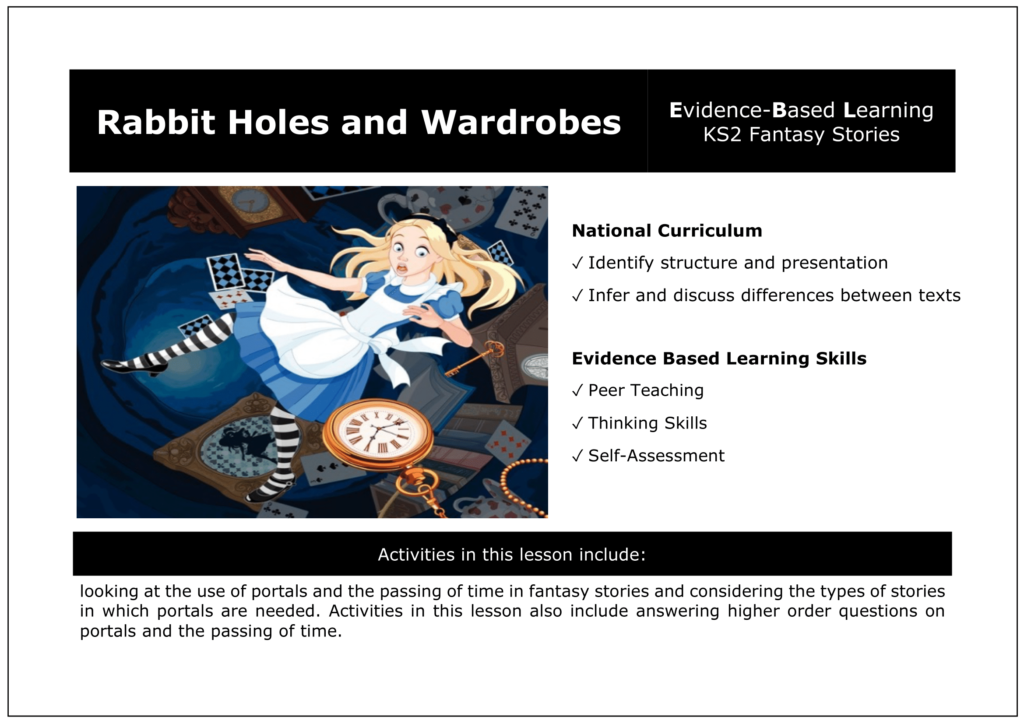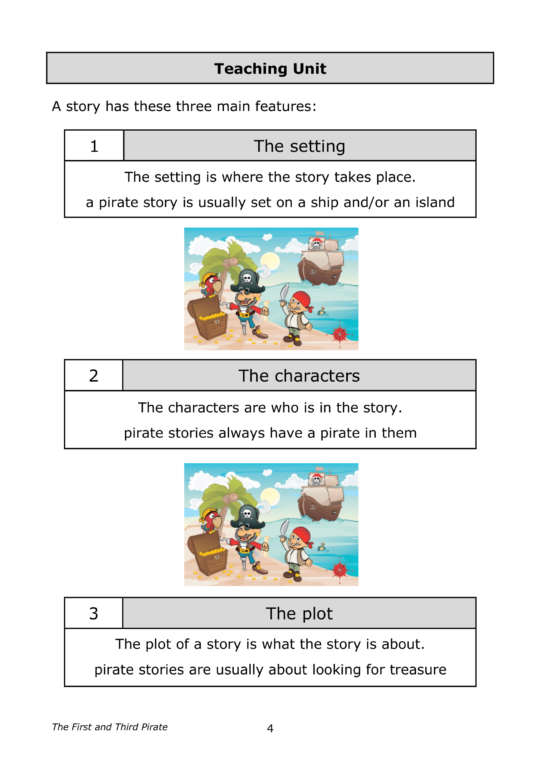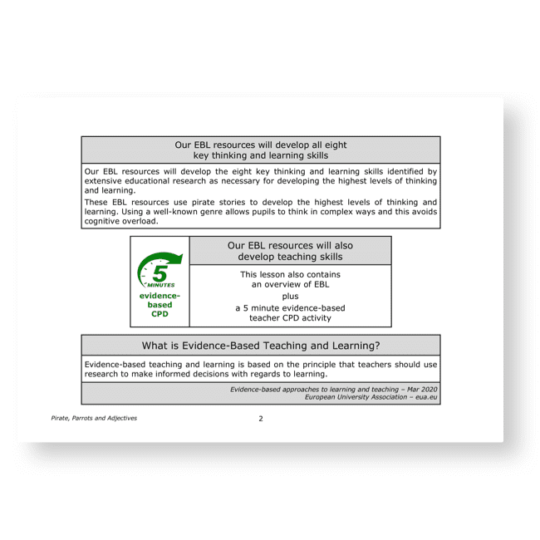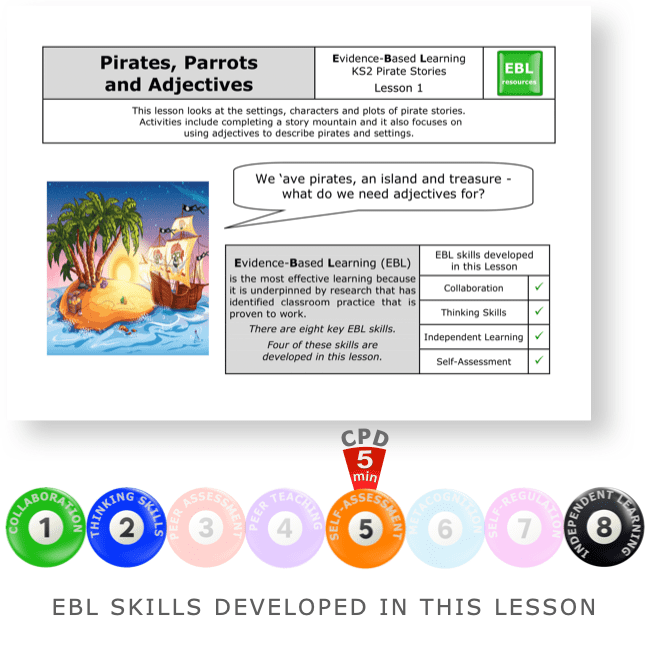Y6 Writing a Quest Myth – individually
£3.00
KS2 National Curriculum:
✓ Planning and writing an extended quest myth with clear structure
✓ Using dialogue, descriptive phrases, and problem-resolution arcs
✓ Self-assessing against success criteria and improving drafts
✓ Incorporating mythical elements (e.g. magical object, challenge, hero)
Activities in this lesson include reminders about the features of a quest myth, looking at the structure a quest myth in detail, looking at the plot of Jason and the Golden Fleece, a step-by-step guide to writing a quest myth, looking at terrifying creatures in myths, what to focus on when writing a quest myth and a template to structure the myth.
There is a five-minute evidence-based CPD activity at the end of this lesson which will develop classroom teachers’ skill set. This CPD consists of a research extract on self-assessment with a five-minute activity based on this extract.
Description
Recommended Year Group: Year 6
Focus: Independent writing of a full mythical narrative
Skills Developed:
• Planning and writing an extended quest myth with clear structure
• Using dialogue, descriptive phrases, and problem-resolution arcs
• Self-assessing against success criteria and improving drafts
• Incorporating mythical elements (e.g. magical object, challenge, hero)
• Writing – Composition: Produce extended writing with a clear structure
• Writing – Grammar & Vocabulary: Use of adjectives, adverbs, dialogue
• Thinking and Learning: Independent planning, self-assessment, redrafting
These evidence-based learning (EBL) lessons are based on classroom practice that has been proven, by research, to maximise thinking, learning and attainment. From an extensive review of educational research, we identified the eight key classroom thinking and learning skills that were common across these research papers. We named these eight key skills “EBL skills”.
EBL skills have been proven by research to maximise learning because they combine the most productive thinking skills with the most effective learning behaviours. Each of our evidence-based learning lessons uses the English curriculum as a framework through which the eight EBL skills are delivered.
Teachers also have the opportunity to add to their own skill set or refresh their existing skills with our five-minute CPD activity, based on one of the EBL skills used in this lesson.
The skills in bold below are the EBL skills developed in this Myths lesson. Click on each skill to learn more about that skill.
- Collaboration
- Thinking Skills
- Peer Assessment
- Peer Teaching
- Self-Assessment
- Metacognition
- Self-Regulation
- Independent Learning
1 review for Y6 Writing a Quest Myth – individually
Only logged in customers who have purchased this product may leave a review.
Related products
-


Y5 Rabbit Holes and Wardrobes
£3.00 Add to basket £3.00Add to basket
£3.00Add to basketKS2 National Curriculum:
✓ Identify structure and presentation
✓ Infer and discuss differences between textsActivities in this lesson include looking at the use of portals and the passing of time in fantasy stories and considering the types of stories in which portals are needed. Activities in this lesson also include answering higher order questions on portals and the passing of time.
There is a five-minute evidence-based CPD activity at the end of this lesson which will develop classroom teachers’ skill set. This CPD consists of a research extract on self-assessment with a five-minute activity based on this extract.
VIEW -


Y5 / Y6 The First and Third Pirate
£3.00 Add to basket £3.00Add to basket
£3.00Add to basketKS2 National Curriculum:
✓ Identifying first- and third-person narrative voices
✓ Understanding present, past, and future tenses
✓ Converting text from third person to first person
✓ Peer and self-assessment of written perspectiveThis lesson looks at person and tense through extracts from pirate stories. Activities include answering higher and lower order questions and a first/third person close activity.
There is a five-minute evidence-based CPD activity at the end of this lesson which will develop classroom teachers’ skill set. This CPD consists of a research extract on self-assessment with a five-minute activity based on this extract.
VIEW -


No Pigs Harmed in this Lesson
£3.00 Add to basket £3.00Add to basket
£3.00Add to basketActivities in this lesson include looking at an alternative version of the Three Little Pigs that is mainly written from the wolf’s perspective. Adjectives are used for descriptions and nouns are used for comparisons. Activities include answering higher and lower order questions and completing a story mountain.
There is a five-minute evidence-based CPD activity at the end of this lesson which will develop classroom teachers’ skill set. This CPD consists of a research extract on self-assessment with a five-minute activity based on this extract.
VIEW -


Pirates, Parrots and Adjectives
£3.00 Add to basket £3.00Add to basket
£3.00Add to basketThis lesson looks at the settings, characters and plots of pirate stories. Activities include completing a story mountain and it also focuses on using adjectives to describe pirates and settings.
There is a five-minute evidence-based CPD activity at the end of this lesson which will develop classroom teachers’ skill set. This CPD consists of a research extract on self-assessment with a five-minute activity based on this extract.
VIEW






Philipem (verified owner) –
We asked a.i. to review this lesson. This is what it said:
Teaching English and Evidence-Based Learning Skills with Myths
Teachers, I’ve discovered a great resource called “Writing a Quest Myth – individually” where students plan and write their own myths. It blends literacy skill development with research-backed learning strategies.
In particular, this quest myth writing lesson focuses on thinking skills, self-assessment, metacognition, and independent learning. For example, students are reminded of the key parts of a myth plot and then guided through planning their own story starring gods, heroes, and magical objects. There are tables to complete on characters and obstacles.
After writing their individual myth, a criteria-based self-review activity allows students to check and improve their own work. There is also a metacognitive question focused on the value of identifying personal strengths versus weaknesses from the self-assessment.
The lesson finishes up with a 5-minute CPD extract for us teachers centred on the academic benefits of self-assessment. It summarises studies showing self-review allows students to pinpoint areas to upgrade.
Implementing more metacognitive and self-directed learning are very effective learning strategies. The full lesson allows students to really lead their own quest myth writing.
With its individual creative writing, self-assessment model, and teacher CPD focused on achievement, I give this comprehensive quest myth lesson ⭐⭐⭐⭐⭐. It empowers students to drive their own literacy progress through structured planning and informed self-evaluation.